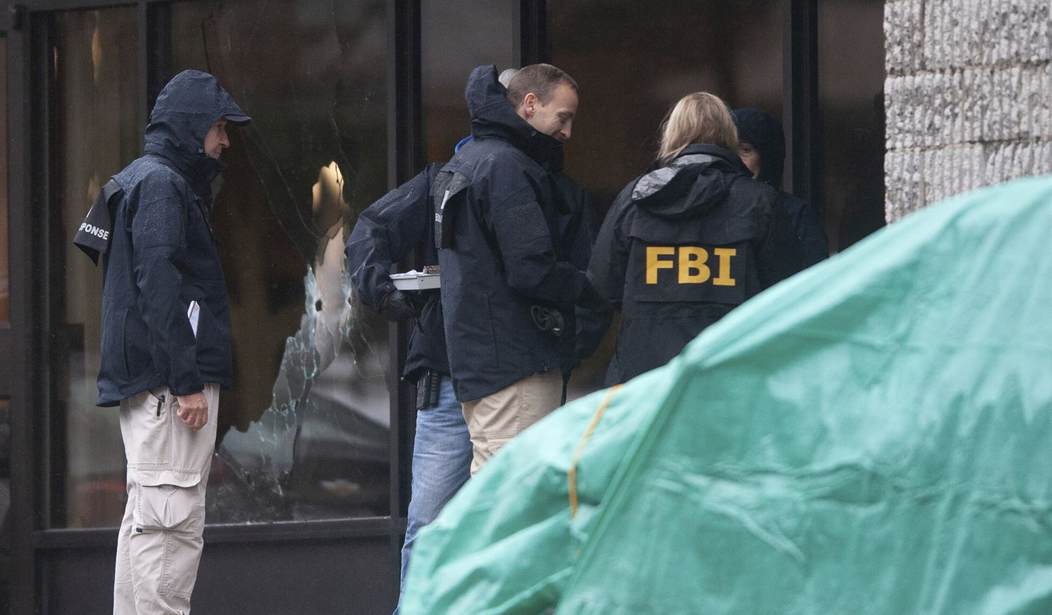Ninth Circuit Finds FBI Search Resembled 'Those That Led to Adoption of the Fourth Amendment'
World Economic Forum Poohbah Klaus Schwab is fond of paraphrasing the Joseph Goebbels quote, "If you have nothing to hide, you have nothing to fear," as "If you have nothing to hide, you shouldn't be afraid." Fortunately, that dark day in America has been kicked down the road by no less a body than a panel of the Ninth Circuit Court of Appeals.
On Tuesday, the court struck down the FBI and Department of Justice in what looks to be a precedent-setting case called Snitko v. United States, dealing a significant blow to the government's expansive search and seizure practices known as "inventory searches."
The case started out with a 2021 raid on a company called US Private Vaults, a California company offering secure safe deposit boxes with minimal personal identification requirements. Though apparently some specific boxes were targeted, the FBI elected to break open some 700 boxes and rummaged through their contents to the extent of bringing drug dogs in to sniff for traces of drugs as an excuse for invoking civil asset forfeiture.
My colleague Jeff Charles covered the preliminaries in his post on the subject.
BACKGROUND: The FBI Stole Millions From Individuals Who Were
Not Charged With a Crime - the Victims Are Suing
A lower court upheld the search, but the Ninth Circuit was having none of it. He reached this ruling despite FBI agents admitting under oath that they opened the safety deposit boxes to confiscate the property using civil forfeiture.
The central problem was that the FBI's warrant did not authorize "criminal search or seizure" of the safety deposit boxes. The FBI claimed it was just an "inventory search" that would allow box contents to be inventoried and returned to their owners. This requires following a specific set of rules that the FBI didn't bother to use.
If there remained any doubt regarding whether the government conducted a ‘criminal search or seizure, that doubt is put to rest by the fact the government has already used some of the information from inside the boxes to obtain additional warrants to further its investigation and begin new ones.”
The judges grilled the FBI and Department of Justice on how their actions didn't violate the very purpose of the Fourth Amendment.
This raid, targeting hundreds of boxes, opened a Pandora's box of legal and ethical questions regarding privacy rights and the Fourth Amendment's protection against unreasonable searches; "It was those very abuses of power, after all, that led to adoption of the Fourth Amendment in the first place."
The crux of the 9th Circuit's ruling lies in its interpretation of the warrant used for the raid. While the warrant authorized the FBI to seize specific contraband related to an ongoing criminal investigation, it did not mention a "general inventory" of the safe deposit boxes, which is what the FBI conducted. The court unanimously found this "inventory" to be a violation of the Fourth Amendment, exceeding the scope of the warrant and constituting an illegal search.
When the government saw the writing on the wall, they tried to use their escape valve.
Five days after being grilled at oral argument, the government tried to make the case go away without a precedent-setting ruling that the FBI’s actions were unconstitutional. Government attorneys filed a motion asking the 9th Circuit to give the plaintiffs what they wanted: an order to destroy records of the FBI’s search.
The government had fought against the destruction of the records for more than two years, and plaintiffs’ attorneys were surprised by the about-face, which they called an attempt to “sweep a massive constitutional violation under the rug.”
The government did not, however, concede that the FBI’s raid was flawed. Instead, the government told the 9th Circuit that it wanted “to avoid a published judicial opinion impugning the actions or good faith motivations of law enforcement in this highly unusual case, in which a company was aiding criminality and protecting criminals by operating a vault of anonymous safe-deposit boxes.”
The FBI agreed to return most of the property and delete all paper and electronic copies of the inventories. I'm not sure who believes that nonsense, but the court took them at their word. So now the FBI has a problem.
Many moons ago, when I was an IG investigator for the Army'sArmy's Recruiting Command, my boss gave me this sage advice on how to read a crowd if you were giving a training session: " If all the recruiters suddenly start writing," he said, "you've just closed a door they've been using or opened a door they didn't know existed."
The government's correct answer at the original trial was, "My bad, we did something wrong, and we'll do the right thing." The fact that they fought this tooth and nail and then tried to get out from under the ruling shows that they routinely use the "inventory search" masquerade to develop evidence in criminal cases and raise cash at your expense.
Though this was a victory, it was also a tragedy. No one was prosecuted. No one was fired. No one cared. "Deprivation of Right Under Color of Law" is a felony. There is a division of the Justice Department that prosecutes these cases. The DOJ IG didn't open a case to see how widespread this problem is, probably because they already know. What about other people who didn't have a high-profile case to attract free legal care? How do they get their property back? And what about the criminal cases launched, cases that helped move someone's career forward, based on patently unconstitutional searches?
Sooner or later, we have to arrive at a point where we admit that the FBI and most of the Department of Justice are much more of a danger to civil liberties than traditional Catholics, pro-life demonstrators, J6 defendants, Donald Trump, and even China.





Post a Comment